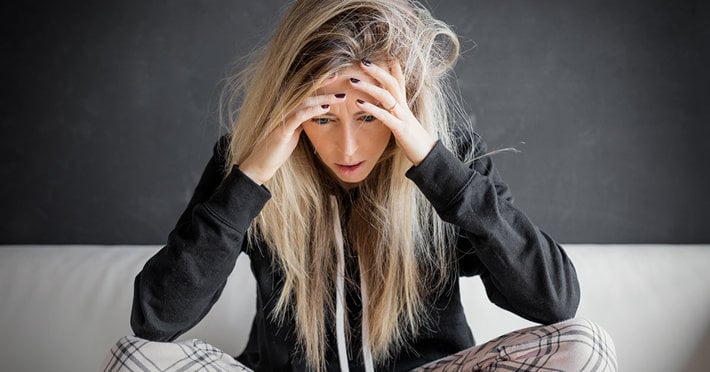
A recent study predicted how much binge drinking increases for each additional week people have been locked down. The data suggested that while lockdown can be beneficial for public health outcomes, it also poses behavioral health risks.
Public health locks are mandatory health measures that are put in place in a county, city, state, or nation to protect the population from health risks. While not common, lockdowns are used during medical crises to prevent the spread of viral pathogens, such as the COVID-19 pandemic. While it may be necessary to implement a stay at home order to slow the spread of COVID-19, it is just as important for public health officials and individual households to consider the potentially harmful effects of such a lockdown.
What is a binge drink?
The National Institute on Alcohol Abuse and Alcoholism recovery defines binge drinking as “A pattern of alcohol consumption that brings the blood alcohol concentration (BAC) to 0.08 percent – or 0.08 grams of alcohol per deciliter – or higher. For a typical adult, this pattern corresponds to consuming 5 or more drinks (male) or 4 or more drinks (female) in about 2 hours. “
Binge drinking is a serious public health problem. According to the Centers for Disease Control and Prevention, binge drinking is the most common and serious pattern of excessive alcohol consumption in the United States. One in six US adults drinks about four times a month and consumes about seven drinks per binge. This translates into 17 billion binge drinks consumed by US adults annually, or about 467 binge drinks per binge drinker. Serious risks associated with binge drinking include:
- Accidental injuries (car accidents, falls, burns, alcohol poisoning).
- Violence (murder, suicide, intimate partner violence, sexual assault).
- Sexually transmitted infections.
- Unwanted pregnancies.
- Fetal alcohol spectrum disorder (FAS).
- Sudden infant death syndrome.
- Chronic diseases (high blood pressure, stroke, heart disease, liver disease).
- Cancers (breast, mouth, throat, esophagus, liver and colon).
- Memory and learning problems, cognitive difficulties.
Heavy drinking statistics rose during lockdown

A study published in the American Journal of Drug and Alcohol Abuse in August 2020 looked at various stressors introduced by the COVID-19 pandemic and the public health response to it. The aim of the study was to examine how heavy drinking trends changed from mid-March 2020 to mid-April 2020, the first month of shelter-in-place orders.
The findings were worrying. Of 1,982 respondents surveyed, 34% admitted that they drink alcohol in the first month of ordering accommodation at the property, a percentage significantly higher than the NIAAA’s estimate that approximately 25.8% of the US population drink alcohol (a pre-pandemic assessment).
The researchers further found that 60% of binge drinkers of people who drank before lockdown binge increased their binge drink during the first lockdown. And of those who weren’t drunk before lockdown, 28% started binge drinking during lockdown.
The longer the lockdown lasted, the greater the likelihood of binge drinking. For every one week increase in time spent at home, the likelihood of binge drinking was 1.19 higher.
Study authors Weerakoon, Jetelina and Knell summarized their findings with a warning for the future. “The results of this study suggest that COVID-19 stressors are related to alcohol use and binge drinking in US residents. This underscores the need to consider the additional and potentially unintended health effects of the COVID-19 pandemic, which could be long-lasting. ”- permanent public health consequences. Future research should aim to adapt and implement innovative efforts to mitigate binge drinking and other potentially negative health behaviors while adults are isolated at home. “
Binge drinking is a predictor of alcohol addiction
Binge drinking is a harmful activity that increases your risk of alcohol addiction. This is especially true for young adults, but everyone, regardless of age, is at risk for alcohol addiction if they drink alcohol.
As mentioned earlier, binge drinking, by itself, carries a long list of risks and harms. And in addition to the danger people expose themselves to by drinking, there is a danger that they will get caught up in a dwindling spiral of alcohol abuse that eventually leads to addiction.
How important it is to properly manage a lockdown
As the behavioral, emotional, spiritual, and mental health of individuals and families are stressed during COVID-19-related lockdowns, it is important that lockdowns are properly managed and that families and households have the resources to stay safe and healthy during such challenging times to stay.
Health care professionals and policy makers need to consider the risks and burdens of a home stay arrangement. It is of paramount importance that families, individuals, employees, students, and the elderly have all the resources to protect their mental and behavioral health while staying at home. If this does not happen, the COVID-19 pandemic can be brought under control, but other public health problems will increase.
Ideas for dealing with the stress of staying home

There are healthy coping strategies:
- Participate in exercises at home. As a way to release endorphins and take it easy on the body, home exercise is an excellent strategy to combat uncomfortable thoughts or feelings when locked in at home for days.
- Find yourself a hobby. Doing something constructive and interesting that you can work on for hours is a great way to manage the on-site safeguards.
- Learn something new. Books, documentation, and online courses are available during a lockdown so a person can expand their mind and learn a new skill, discover a new topic, or improve in an area they want to work on.
- Spend time with the family. Most families need to seek shelter together, which gives families a rare opportunity to bond and get to know each other better.
- Make projects around the house or garden. A shelter-in-place order is a great time to do repairs or improvements to the home, improve the landscaping and outdoor areas, or generally clean up.
One could argue that protecting the population from the dangers of addiction is just as important as protecting physical health. With COVID-19 bans now known to pose behavioral health risks, families, health professionals, planners, and policymakers must consider these risks in the future in order to plan actions that may best mitigate these risks.






